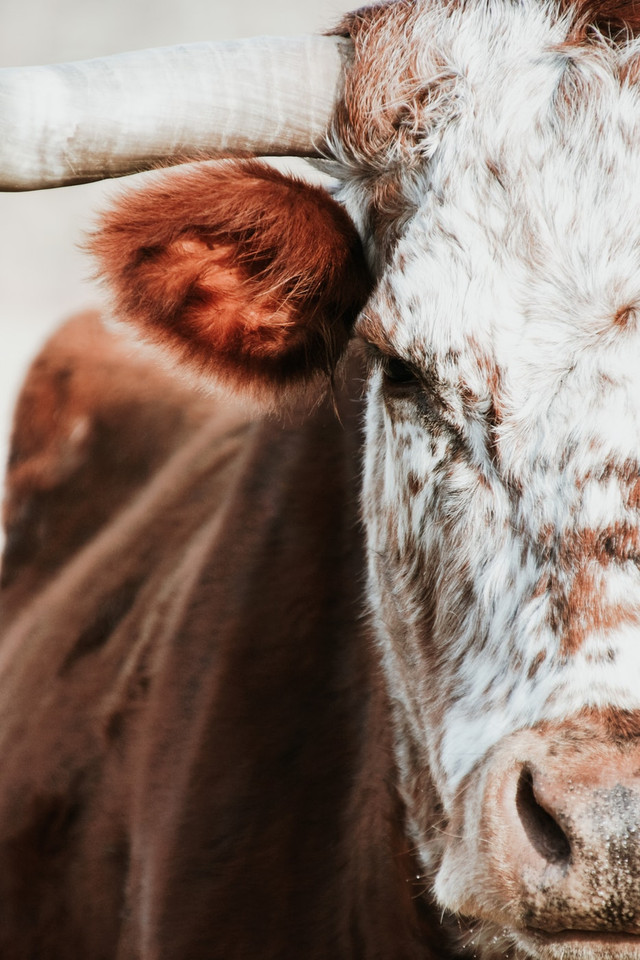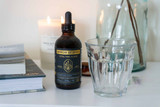The Dairy Estrogen Link

Estrogen and Dairy: What's the Connection?
A hundred years ago none of this mattered. There were other, severely life threatening concerns to worry about. Antibiotics, hand washing, clean water, and wealth have taken care of most of those concerns. But today we have new threats to our health, and I'd argue, one of those major threats in the prevalence of hormone mimickers in our environment and, subsequently, in our bodies.
I state this before writing more about eliminating estrogen from the body because estrogen in the body--for men and women--is not necessarily a bad thing. A hundred years ago it didn't mater. But now we live longer and we have poisoned the environment with xeno-estrogens, so all of a sudden it matters and it matters in a big way. It is not the estrogen, prima facie, that matters, it is the type of estrogen and the prevalence of the estrogen that is the issue. Estrogen is an important, vital hormone for women and men. But too much of a good thing isn't great--its bad. It is important to recognize this because when talking about estrogen and health, it is easy to assume that all estrogen is bad, which is simply not the case.
But, in today's world, we are really facing the onus of managing our estrogen load--limiting what goes in and maximizing what goes out. It is a simple fact of reality, and if the chemical toxins were androgen (testosterone group) hormone analogs, the onus would be the same, because it is not the hormone per say that is the issue, it is the type and the prevalence that is the issue.
The Dairy - Gluten - Estrogen Connection
Estrogen in our diet, as you will soon see, is more than avoiding the top offenders. Avoiding dietary estrogen is also identifying both the multitude of sources of estrogen and also better understanding how the body's own detoxification pathways are compromised and what can be done about it. See our previous blog post The Real Causes of Estrogen Toxicity for more information about this. In the following passage from the book Women Code by Alisa Vitti, you will learn more about both these topics: where estrogen is lurking in the diet and how the body's own ability to rid itself of estrogen is being compromised. While specifically geared to women, this information is absolutely universal (aside from the fact that men do not get fibroids in their breasts with much regularity and that men simply cannot suffer from endometriosis).
Cutting our Wheat and Dairy
Most women suffering from any of the three categories of hormonal conditions--menstrual, fertility, or libido--can benefit greatly from removing dairy and wheat (specifically gluten) from their diet. There are several reasons why:
Dairy is loaded with estrogen. It contains 60 to 80 percent of the estrogen consumed in the American diet. What's more, cows on most modern dairy farms are pregnant nearly year-round, and milk from a knocked-up cow contains about 33 percent more of a certain kind of estrogen that can affect the human body than milk from cows that aren't pregnant. While the last thing any women with a hormone-driven condition needs is adding more estrogen into the mix, this is especially true from women dealing with fibroids and endometriosis. Estrogen has growth stimulating effects in your body (just as it causes us to grow and mature in puberty), and these can make the excess tissue growth you're already experiencing with fibroids and endometrios is even worse.
Casein (the indigestible portion of dairy) and gluten (the indigestible portion of wheat) elicit an inflammatory response in the small intestine, whether or not you're allergic to them. Although you can have occasional doses of these things and the body neutralizes the inflammatory response with antioxidants from the diet, the reality if that all of us are overexposed, so our small intestine is constantly in an inflamed state. This compromises your ability to properly absorb all the nutrients from the foods that you eat.
Both dairy and wheat tend to slow transit time through the large intestine. This increases estrogen dominance, because your body can't clear that hormone our of your system quickly enough. When you're not going to the bathroom regularly, estrogen permeates the lining of the large intestine and makes its way back into your blood stream, leading to an excess of estrogen in your body.
Vitti, A. (2013). Woman code: Perfect your cycle, amplify your fertility, supercharge your sex drive, and become a power source.
Raw Milk for the Lactose Intolerant?
Since I originally posted this, I should add that a comprehensive analysis of raw milk and lactose tolerance and intolerance has been published, titled Effect of raw milk on lactose intolerance: a randomized controlled pilot study. A lot of people may be unintentionally and unknowingly causing inflammation throughout the body and damaging both the small and large intestine by consuming raw milk. I encourage you to look at the study if you are interested in the subject or the controversy surrounding raw milk. Remember, trust your body, not the hype.
Site Disclaimers
General Guidence
The content on this site is provided for educational and informational purposes only and should not be construed as medical advice. Always consult a qualified healthcare provider before making changes to your diet, lifestyle, or health regimen, particularly if you are pregnant or nursing, under the age of 18, managing allergies or known sensitivities, or living with any medical conditions.
At RAW Forest Foods, your safety is our priority. Please note that our products are dietary supplements, not medications. The following disclaimer applies:
* These statements have not been evaluated by the Food and Drug Administration. These products are not intended to diagnose, treat, cure, or prevent any disease.
Ingredient Transparency and Allergen Awareness
We are committed to providing transparent ingredient information to help you make informed decisions. If you have or suspect you have allergies to any of our ingredients, we strongly advise against using our products, as allergic reactions can be severe.
Interaction with Medications
If you are taking any medications, consult with your healthcare provider before using supplements. Certain supplements may interact with medications, potentially altering their effectiveness or causing unwanted effects.
For more details, please review our full Terms and Conditions.






